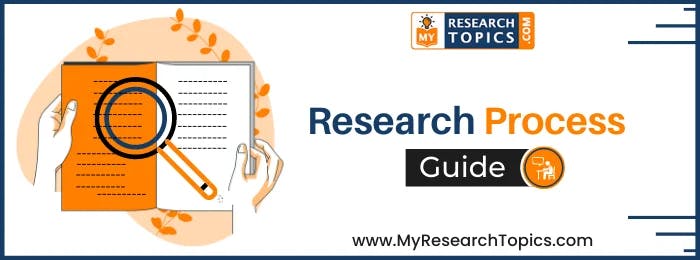What are Graduate Teaching Assistants?
Published 16 October, 2023
Graduate teaching assistants (GTA) are graduate students who are appointed to assist faculty in instruction, typically in large undergraduate courses. They work closely with professors to develop lesson plans, grade assignments, and lead discussion sections.
GTA salaries vary by school and by state. In general, they earn a living wage and receive a tuition waiver for their own graduate studies. Some schools also offer medical insurance and other benefits.
Graduate teaching assistants play an important role in the education of undergraduate students. They help professors manage large classes, provide personalized attention to students, and cultivate a love of learning in their students.
If you’re passionate about science and technology, then a career in the field is waiting for your skills! From teaching at universities or labs on campus to assisting with research projects–you could find yourself doing anything from managing laboratory equipment all day long as an experiment runs its course.
And don’t forget that there are plenty more opportunities out here too; maybe specialize some knowledge by becoming certified through consultations etc., which will help people learn faster than ever before.
What are the responsibilities of a Graduate Teaching Assistants (GTA)?
- The primary responsibility of a GTA is to help professors with instruction in the classroom. This may include grading papers, leading discussion groups, and proctoring exams.
- GTAs are also often responsible for helping students outside of the classroom. They may hold office hours, offer tutoring services, and serve as mentors to students.
- GTAs may also be asked to conduct research alongside professors or act as teaching assistants for undergraduate courses.
- GTAs are typically required to attend departmental meetings and professional development workshops.
- Some GTAs may also be responsible for managing laboratory equipment or assisting with experiments.
- GTAs may be asked to perform other duties as assigned by their supervisor.
What are the benefits of being a Graduate Teaching Assistant (GTA)?
- The primary benefit of being a GTA is that you will receive a tuition waiver for your own graduate studies. This can save you thousands of dollars on your education.
- GTAs also typically earn a living wage. This means that you will be able to support yourself while you complete your degree.
- Some schools also offer health insurance and other benefits to their GTAs.
- Being a GTA is an excellent way to gain experience in the classroom. If you are considering a career in education, this is a great way to get started.
- GTAs also have the opportunity to develop relationships with professors and other graduate students. These relationships can be beneficial both professionally and personally.
What are the qualifications for being a Graduate Teaching Assistants (GTA)?
To be a GTA, you must be enrolled in a graduate program at a university. Some schools require that you have completed a certain number of credits before you can apply to be a GTA.
GTAs must be able to demonstrate their proficiency in the subject matter they will be teaching. This may require passing a subject matter exam or completing a graduate-level course in the subject.
GTAs must also possess excellent communication and interpersonal skills. They should be able to effectively communicate with both professors and students.
In addition, GTAs must be able to work independently and take initiative. They should be able to take direction from their supervisor but also be able to work independently when necessary.
Finally, GTAs must be able to manage their time effectively. They will need to be able to juggle their own coursework with their responsibilities as a GTA.
What is the salary of GTA (Graduate Teaching Assistant)
The approach universities take towards paying GTA salaries is dependent on the institution. Some pay an hourly rate whereas others have monthly payments set aside for staff members
University payroll can be complicated, but it’s worth understanding how your school operates so that you know what kind of benefits are available and which ones might suit you best.
The hourly rates will depend on your specific agreement with the university but we have extracted some examples for 2019/20 GTA students at York as follows:
Marker
Ensure that student work is recorded as needed by the department- £9.09
Laboratory Leader
Lead students in laboratory or fieldwork environments in assistance with senior staff members-£13.45
Tutoring
Facilitate student learning through supporting in the delivery of lectures or tutorials. Assist in the development of existing teaching material or resources-£13.45
Demonstrating
Provide practical demonstrations in liaison with senior staff members during lab sessions, workshops or fieldwork-£13.71
Universities regularly pay graduate teaching assistants a set amount under the nationally agreed upon spine point system. The Kent University in England, for example assigned GTAs with an annual salary of £27K (based on 2018/19 pay spines) and this varies depending on responsibilities taken by each position’s requirements
In addition to receiving their appropriate salaries taught assistant also receive extra incentives such as healthcare coverage or travel expenses if they work outside of campus.
What is the Tuition Fees for GTA students?
As a student in GTA scholarship, your university will cover the expenses for most of your tuition fees. If you are an international student and only part-financing is covered by this program then it’s up to yourself how much more money should be invested into studying there or not.
In some cases, additional support might be provided by the GTA program in order to help with your accommodation or other associated costs. Make sure to check this before making any final decisions.
What is the stipend of GTA?
You will receive a stipend to help cover your living and travelling costs. The amount you receive is typically provided for the first three years or longer if you are part-time, with monthly payments reaching £4 407 per year as per Research Councils UK’s Indicative Fee Level 2020/21.”
What are the working hours and annual leave provided to GTA?
You can expect to work a variety of hours depending on your department. Some departments require four per week, whereas others may ask for up 20-hour weeks from you – no matter how many days it is that they are scheduled throughout the course in question!
Regardless if this number changes at any point during employment or not though (as certain duties could take over), every teacher should know what their schedule entails beyond simply lectures and student tuition: namely preparing them before class starts by doing lecture prep activities such as reading through materials aloud so there won’t be any surprises on test day.
The number of paid annual leave hours you receive will be specified in your GTA contract. This leave is in addition to your regular working hours, and it will be prorated based on the number of hours you are contracted to work per year. For example, if you are contracted to work 240 hours per academic calendar year (equating to 7 hours per week), you would be entitled to 40 hours of paid annual leave.
This leave can be used for any purpose, and it can be taken at any time during the year. However, it is important to note that you may need to use some of your leave time to attend mandatory training sessions or other events related to your role as a GTA.
Working towards a doctorate can be a demanding process, requiring long hours of research and writing. However, the exact nature of your work schedule will vary depending on the needs of your department. While you will have a set number of annual hours, their allocation will vary weekly depending on departmental demand.
As a result, it’s not uncommon to work 5 hours one week and 10 hours the following week. While your working hours will need to be flexible, your supervising professor will work with you to agree on a schedule that doesn’t affect your ability to carry out your doctorate. This may involve scheduling certain tasks for times when you know you will have more available hours, or adjusting your workload in response to changes in departmental demand.
Ultimately, the goal is to ensure that you are able to complete your doctorate in a timely and successful manner.
Is a Graduate Teaching Assistantship for you?
A Graduate Teaching Assistantship (GTA) can be a great way to gain teaching experience, learn more about your field of study, and earn some money while you’re at it. But it’s not right for everyone. Here are some things to consider before applying for a GTA position.
First, ask yourself if you have the time and energy to commit to being a GTA. Teaching can be time-consuming and demanding, even if you’re just leading discussion sections or grading papers. If you’re already struggling to keep up with your coursework, taking on extra assignments might not be the best idea.
Second, think about whether you would enjoy teaching. Not everyone is cut out for the classroom, and that’s okay. If you’re not sure if teaching is for you, talk to some current and former GTAs to get their perspectives.
Finally, consider the financial implications of taking on a GTA position. In most cases, GTAs are paid an hourly wage for their work. This can be a good way to offset the cost of tuition, but it’s important to remember that you will also be responsible for paying taxes on your income.
If you’re still not sure if a GTA position is right for you, talk to your academic advisor or a professor in your department who supervises GTAs. They can give you more information about what the job entails and help you make a decision.
Where can I find Graduate Teaching Assistant openings?
There are many ways to find a PhD position, but you don’t need anything special. Just search our database of programs and see if any GTA-sounding positions exist for the universities that interest you.
The universities don’t have a set policy on which projects get GTA positions but they do leave it up to each individual student’s PhD program.
When contacting supervisors about available PhD projects, state your interest in becoming a Graduate Teaching Assistant. This will allow them to know how serious you are and they may offer some advice further down the line.
Other Related Guides
- Research Project Questions
- Types of Validity in Research – Explained With Examples
- Schizophrenia Sample Research Paper
- Quantitative Research Methods – Definitive Guide
- Research Paper On Homelessness For College Students
- How to Study for Biology Final Examination
- Textual Analysis in Research / Methods of Analyzing Text
- A Guide to Start Research Process – Introduction, Procedure and Tips
- Research Findings – Objectives , Importance and Techniques
- Topic Sentences in Research Paper – Meaning, Parts, Importance, Procedure and Techniques












